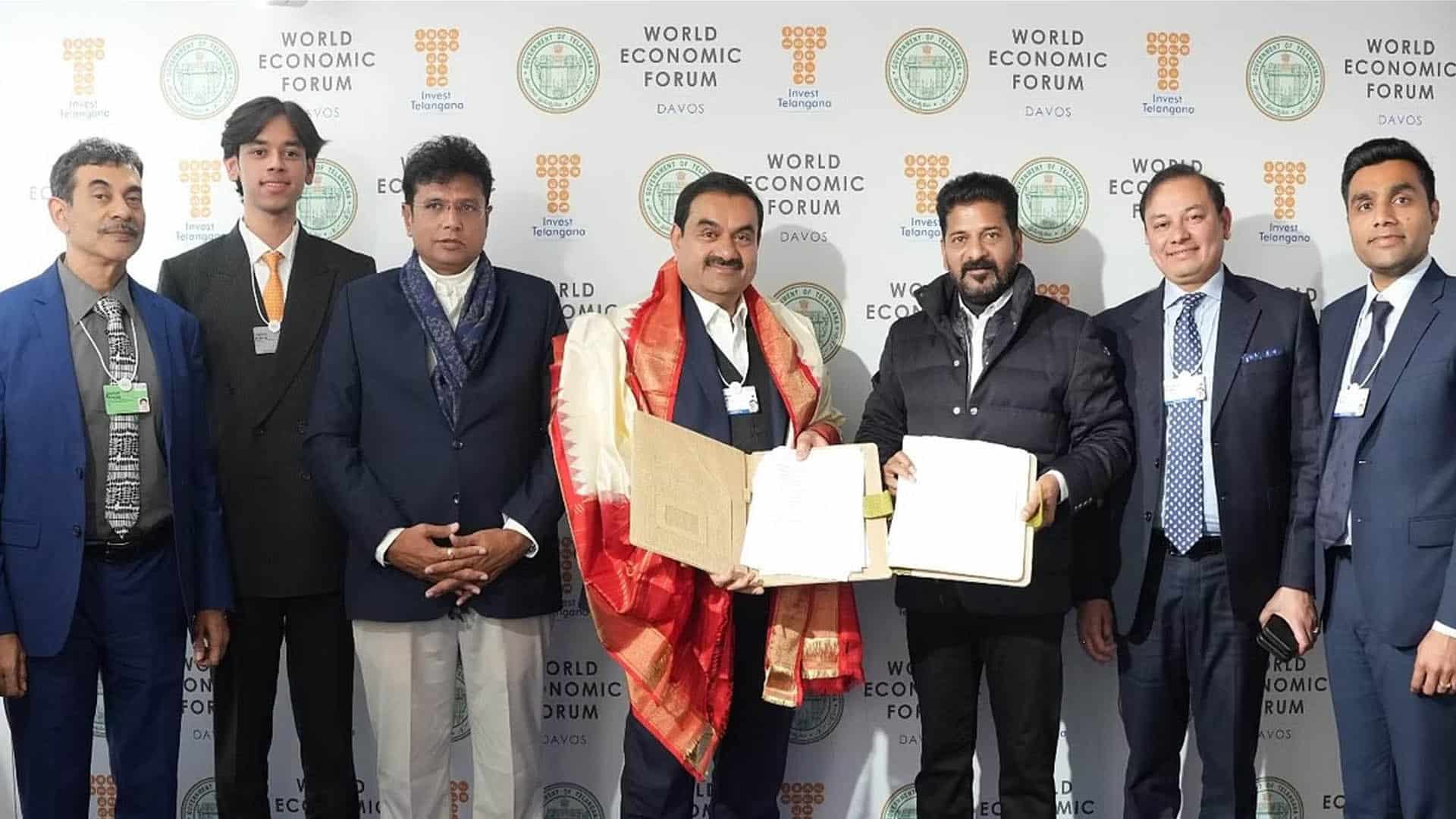Our Political Desk
The Telangana government, under Chief Minister A. Revanth Reddy, finds itself navigating a political and financial minefield. At the heart of the controversy lies a Rs 100 crore donation from the Adani Group for the establishment of the Young India Skills University and four memorandums of understanding (MoUs) worth Rs 12,400 crore, signed with the Adani conglomerate during the World Economic Forum 2024. These agreements hailed as transformative for Telangana’s renewable energy landscape, have now become a political lightning rod.
The root of the crisis can be traced to Congress leader Rahul Gandhi’s vocal stance against the Adani Group. Gandhi, a fierce critic of the conglomerate following allegations of financial misconduct reported globally, has demanded a full investigation and even the arrest of its chairman, Gautam Adani. In this context, the Telangana government’s dealings with Adani have sparked questions about Chief Minister Reddy’s alignment with his party’s leadership and principles.
Reddy’s decision to tread cautiously has invited criticism from political observers. An emergency cabinet meeting to decisively cancel the agreements would have showcased a clear break from Adani and aligned the state government with Gandhi’s position. Instead, mixed signals—media leaks suggesting a possible review without concrete action—have muddied the waters. This dithering not only undermines the government’s narrative but also risks alienating both party leadership and the electorate.

The stakes are high. Returning the Rs 100 crore advance paid by the Adani Group would exacerbate Telangana’s already precarious financial situation. Reports indicate that the state is struggling to meet its fiscal obligations, from paying salaries and pensions to fulfilling welfare promises such as the Rs 2,500 Mahalakshmi scheme for women. Nevertheless, Chief Minister Reddy has pressed ahead with high-cost initiatives, including a lift irrigation system and housing projects for Musi River beautification evictees—moves that critics say are unsustainable given the strained budget.
Compounding the controversy is Reddy’s recent defense of accepting funds from Adani. During a public statement in Mumbai, he questioned the logic of rejecting funds for welfare schemes while the central government maintains its financial ties with the conglomerate. This stance has fuelled speculation about internal rifts within Congress, with reports suggesting dissatisfaction among the party high command. Critics see Reddy’s position as contradictory and potentially damaging to his future within the party.
Rumours of a potential leadership change in Telangana are gaining traction. While Reddy’s supporters argue that his financial contributions to the party make his position secure, detractors cite his handling of the Adani issue as evidence of political mismanagement. The Congress high command’s silence on the matter only adds to the uncertainty.
For Chief Minister Reddy, the Adani controversy represents a defining moment. The choice is stark: cancel the agreements and face financial fallout or uphold the deal and risk further alienation from Congress leadership. Either decision carries significant risks, with potential consequences for his tenure and the state’s political stability.
As Telangana waits for clarity, the larger question looms: will the Congress high command prioritize addressing internal discord, or will it focus on steadying the ship amid financial and political turbulence? The answer will likely shape not only Reddy’s future but also Congress’s standing in one of India’s most politically dynamic states.






